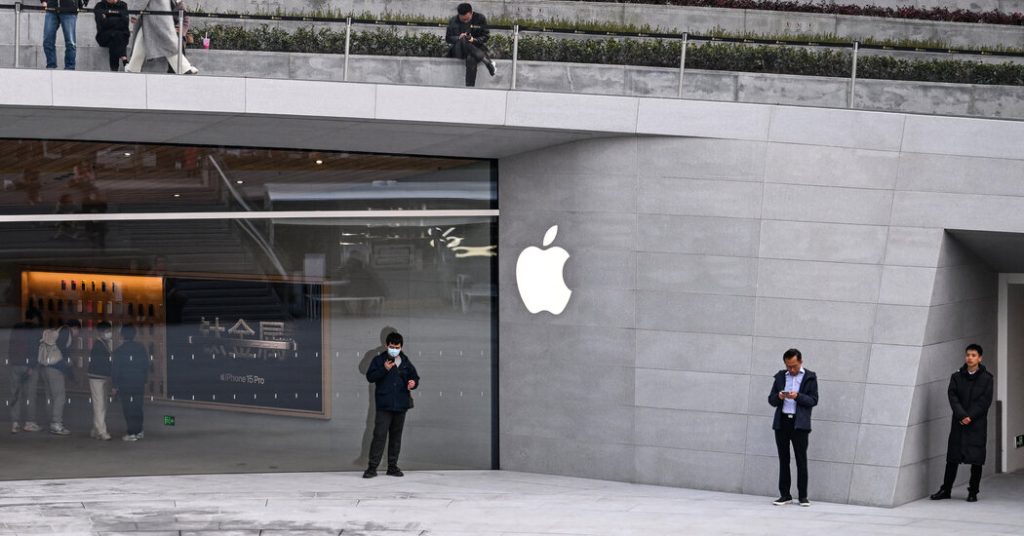Apple was forced to pull the Meta-owned apps WhatsApp and Threads from its app store in China on government orders due to national security concerns. The Chinese government allegedly found content on these apps about China’s president, Xi Jinping, that was inflammatory and violated cybersecurity laws, prompting their removal. This action escalates the ongoing war over technology between the United States and China as other global messaging apps such as Signal and Telegram were also removed from Apple’s App Store in China.
The United States and China have been engaged in a tussle over technology, with the U.S. House of Representatives preparing to vote on a bill that could force ByteDance, the Chinese internet company, to sell its popular video app TikTok or face a ban in the United States. Chinese officials have condemned this move, while the White House has worked to restrict Beijing’s access to advanced technologies and American financing for technological development in China. Beijing has responded by banning American companies and curbing sales of their products.
China has a history of blocking American websites such as Facebook and Instagram through the Great Firewall. While WhatsApp and Threads were allowed in app stores in China, they were not widely used as Chinese apps like WeChat dominated the market. Nonetheless, Chinese users could download WhatsApp and access it through virtual private networks. Apple, which relies on China for a significant portion of its annual sales, has complied with Beijing’s demands to block various apps over the years and has even stored Chinese citizens’ iCloud data in a local data center.
Notably, Apple has had to diversify its supply chain due to tensions between the United States and China by assembling products in countries like India and Vietnam. Tim Cook, Apple’s CEO, has been visiting suppliers in Vietnam and exploring opportunities in Indonesia. On the other hand, Meta, previously known as Facebook, has faced challenges due to Apple’s restrictions on data tracking for advertising purposes. Meta makes money from Chinese companies advertising on Instagram and Facebook, despite many of its apps being banned in China.
In the United States, the push against TikTok has gained momentum, with House lawmakers expected to vote on a package of legislation that includes measures to force ByteDance to sell TikTok. If this package passes in the House and Senate, President Biden has indicated that he would sign the legislation into law. The ongoing tensions between the U.S. and China, as well as the impact on tech companies like Apple, Meta, and ByteDance, reflect the complicated relationship between global technology giants and the regulatory environments in different countries.


